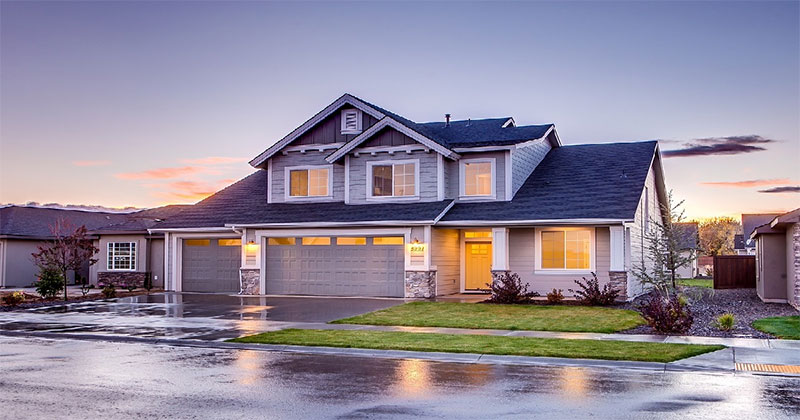
Did you ever stop to realize that wanting to achieve the American Dream – a chicken in every pot and two cars in your garage – is “the problem”? Yep! You and your selfish dream are destroying this country. I kid you not.
The article “The problem with America’s high homeownership rate” by Felix Salmon1 spells it out loud and clear. It begins by telling us that our decades-long love affair with homeownership is not only holding back the economy, but also “hobbling the Federal Reserve (as if their problem isn’t self-inflicted) and exacerbating a national housing crisis.” Nope, sorry. The housing crisis is greatly driven by the big non-governmental organizations (NOGs) gobbling up houses to turn into rentals, for now (a story for another time). And, as in Hawaii, taking people’s property via the insurance companies (other NGOs) denying coverage for the fire damages.
Further down it says there is “a deeply inefficient distribution of where people live”. As if people should not choose where they want to live, but maybe, be directed into 15-Minute Smart Cities? Oh, and also another reason to not own a home – “mortgages have become the primary means of American middle-class wealth creation”. What’s wrong with that? According to Salmon, “The principal amount outstanding on a mortgage slowly declines over time, even as the value of the home (generally) goes up. The result, if everything goes according to plan, is ever-greater home equity, and therefore wealth.”
Uh, isn’t this still America, where freedom, property rights, and free-market capitalism are guiding principles?
So what does Salmon see as wrong with us owning homes? First, “the 36% of households in the middle quintile who don’t own their home at all, and for whom home equity is therefore 0% of their net worth.” Good grief, some people don’t want to own a home and have the responsibility of keeping it up. Yes, there are those (not in the middle quintile {unless they live in the very expensive cities}) who can’t afford to buy a home.
His two bottom lines:
“The result is endemic Nimbyism – knee-jerk local opposition to any attempt to build more desperately needed housing pretty much anywhere.”
“All humans need shelter. But homeownership has created a class of winners (think of everyone smugly sitting on a mortgage fixed at #% regardless of what the Fed does) – who also have a financial incentive to deny new shelters to others.”
I suggest that it isn’t the homeowners who are denying new shelter to others; it is the NGOs such as BlackRock, Vanguard, and the rest who believe Klaus Schwab’s “You will own nothing and be happy” – is only for those 1% of the 1%ers.
Oh, in re the chicken in every pot, come on – the non 1%ers are supposed to be eating bugs, not meat. And, as for the two cars in every garage, few in the middle quintile can afford one electric car (EV) let alone two. And they sure as heck can’t afford a charging station in their garage.
Let’s face it. The American dream is becoming a myth, but not because the middle class owns their own homes. It is because they are being taxed, regulated, and generally being driven out of their private property. It is past time to put a stop to this. The “shelter” those in power would like to see us in belongs on the gulag archipelago.
Start taking back your cities and counties.
Sources:
-----------------------------------
Kathleen Marquardt has been an advocate for property rights and freedom for decades. While not intending to be an activist, she has become a leader and an avid supporter of constitutional rights, promoter of civility, sound science, and reason. She is dedicated to exposing the fallacies of the radical environmental and animal rights movements. She has been featured in national publications including Fortune, People, the Washington Post, and Field and Stream, as well as television news programs such as Hard Copy, The McLaughlin Group, Geraldo, and many others. Today, she serves as Vice President of American Policy Center. Kathleen now writes and speaks on Agenda21/2030, and its threat to our culture and our system of representative government.
















